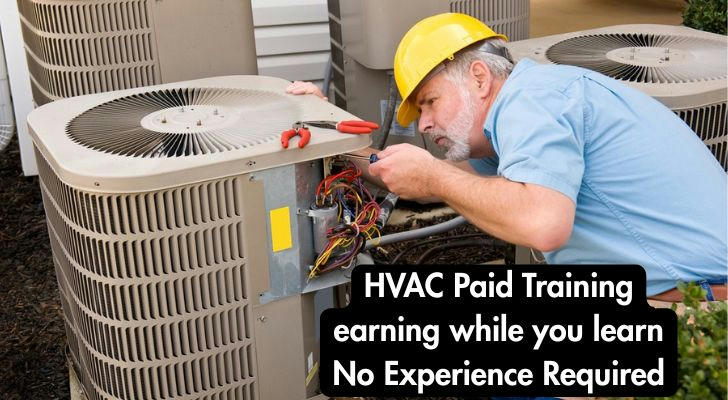Paid Hvac Training: Everything You Need To Know
Thinking about a stable career with solid pay? Paid HVAC Training programs let you earn a paycheck while gaining hands-on experience in heating, ventilation, and air conditioning. Here’s what you need to know.

What Exactly Are Paid HVAC Programs?
A paid HVAC program is often called an apprenticeship. Participants learn essential trade skills through classroom instruction and supervised on-the-job training while earning an hourly wage. Employers or trade unions typically sponsor these programs, covering tuition costs in exchange for a commitment to work for them after completion.
These opportunities typically fall into a few categories:
Registered Apprenticeships: These are formal programs recognized by the U.S. Department of Labor. They combine on-the-job training with related technical instruction, usually spanning several years. Apprentices begin earning a percentage of a journey-level technician's wage, with raises as they progress through the program and gain more skills.
Employer-Sponsored Training: Many HVAC companies offer their own in-house training programs. They hire individuals, often with little to no prior experience, and train them through a combination of shadowing experienced technicians and attending internal workshops or classes. The aim is to develop qualified technicians who can contribute directly to their workforce.
Union Apprenticeships: Local union chapters (such as those associated with the United Association, or UA) run highly respected paid apprenticeship programs. These typically offer strong benefits, comprehensive training, and clear pathways to becoming a journey-level technician with competitive wages.
How Much Can You Earn?
The pay varies by state and employer, but entry-level apprentices typically start around $15–$20 per hour. As skills and certifications increase, wages can grow to over $30 per hour. According to the Bureau of Labor Statistics, the median annual wage for HVAC technicians in 2024 was about $59,810, with top earners exceeding $80,000. Many employers also offer benefits like health insurance, retirement plans, and paid vacation.
How to Qualify
Minimum requirements often include:
- A high school diploma or GED
- Basic math and reading skills
- A valid driver’s license
- Physical ability to lift equipment and work in varied environments
Some programs prefer applicants who have completed pre-apprenticeship courses or vocational training in HVAC basics.
How to Find a Paid HVAC Training
There are several reliable ways to locate opportunities:
Local Unions and Trade Associations: Groups like the United Association of Journeymen and the Air Conditioning Contractors of America maintain lists of accredited apprenticeships.
Community Colleges: Many schools partner with employers to offer combined classroom and field instruction.
Online Job Boards: Websites such as Indeed or Apprenticeship.gov often post paid training positions.
State Workforce Agencies: Most states operate apprenticeship offices that can guide you through applications and eligibility requirements.
What to Look For in a Program
When researching paid HVAC programs, consider the following:
Program Structure: Understand the balance between classroom instruction and on-the-job training. How long is the program? What certifications can you earn?
Reputation: Look for programs with strong reputations, good completion rates, and positive feedback from current or former participants.
Employer Commitment: For employer-sponsored programs, assess the company's long-term commitment to training and their track record of retaining trained technicians.
Compensation and Benefits: Inquire about starting wages, pay increases during training, and any benefits offered (like health insurance or retirement plans).
Real Stories, Real Earnings
Take Maria, 24, from Florida. She completed a 3-year union apprenticeship, earning 22/hour in her second year. Today, she’s a licensed journey woman earning 34/hour, with benefits like health insurance and retirement contributions. “I started earning right away—no loans, no waiting,” she says.
Next Steps
Ready to start? Visit the BLS website to explore state-specific demand, or contact your local community college’s career center for partnership details. Talk to current HVAC techs—they’ll tell you the best programs in your area.
Paid HVAC training isn’t a shortcut—it’s a smart way to build a stable, well-paying career without drowning in debt. Your first paycheck could be just months away.
